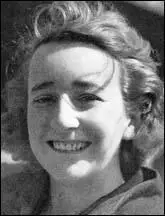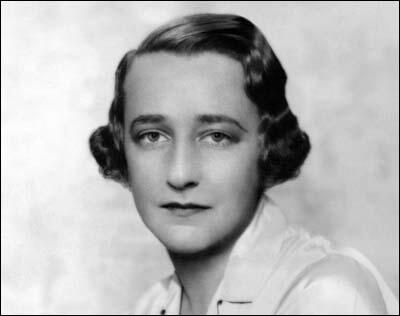Lillian Hellman

Lillian Hellman was born in New Orleans on 20th June, 1905. After graduating from New York University she worked as a publisher's reader.
Hellman's first play, The Children's Hour (1934), which tells of the havoc caused by a schoolgirl's invention of a lesbian relationship, was an immediate success. Hellman held left-wing political views and was active in the campaign against the growth of fascism in Europe. She joined other literary figures such as Dashiell Hammett, Clifford Odets, Arthur Miller, John Dos Passos and Ernest Hemingway in supporting the Republicans during the Spanish Civil War.
In 1939 Hellman had her second major success with her play about a Southern family, the Hubbards. The Little Foxes was followed by two anti-Nazi plays, Watch on the Rhine (1941) and The Searching Wind (1944). Her next play, Another Part of the Forest (1946) once again dealt with the Hubbard family.
The FBI began to investigate Lillian Hellman's political attitudes in 1943. J. Edgar Hoover wrote: "You are reminded that this subject has a national reputation through her writings in which she has opposed nazism and fascism. Under no circumstances should it be known that this bureau is conducting an investigation of her. It should be handled in a most discreet manner and under no circumstances should it be assigned to the local police or some other agency."

As a result of her well-known political views, in 1951 Hellman and her partner, Dashiell Hammett, were called to appear before the House of Un-American Activities Committee. Hellman agreed to talk about her own involvement with radical groups, but was unwilling to give names of her comrades and as a result was blacklisted.
"To hurt innocent people whom I knew many years ago in order to save myself is, to me, inhuman and indecent and dishonorable. I cannot and will not cut my conscience to fit this year's fashions, even though I long ago came to the conclusion that I was not a political person and could have no comfortable place in any political group." Hammett, as well as being blacklisted, was sent to prison for six months.
Hellman wrote two more plays, Autumn Gardens (1951) and Toys in the Attic (1960), and three volumes of autobiography, An Unfinished Woman (1969), Pentimento (1973) and Scoundrel Time (1976).
Lillian Hellman died at Martha's Vineyard, on 30th June, 1984.
Primary Sources
(1) J. Edgar Hoover, letter concerning a proposed FBI investigation into Lillian Hellman's political activities (20th October, 1943)
You are reminded that this subject has a national reputation through her writings in which she has opposed nazism and fascism. Under no circumstances should it be known that this bureau is conducting an investigation of her. It should be handled in a most discreet manner and under no circumstances should it be assigned to the local police or some other agency.
(2) When Lillian Hellman appeared before the House Committee on Un-American Activities in 1951 she willing to talk about her own political past but refused to testify against others.
To hurt innocent people whom I knew many years ago in order to save myself is, to me, inhuman and indecent and dishonorable. I cannot and will not cut my conscience to fit this year's fashions, even though I long ago came to the conclusion that I was not a political person and could have no comfortable place in any political group.
(3) William Wright, New York Times (3rd December, 1996)
When in 1934 the success of her first play, The Children's Hour, brought celebrity at the age of 28, she immediately put her fame to work for leftist causes and remained, throughout her life, a bellicose figure in the nation's political arena. This commitment culminated in her courageous defiance of the House Committee on Un-American Activities in 1952. As a dramatist, author, screenwriter and activist, Hellman was a commanding presence in America's cultural life for half a century.
Most women as plain as Hellman would have slunk off into a comfortable marriage or sublimated their amorous side altogether. But she defied her facial bad luck as resolutely as she defied the House committee. She had a celebrated and glamorous affair with Dashiell Hammett - and affairs as well with other handsome and distinguished men like the publisher Ralph Ingersoll and the diplomat John Melby. And this was a field from which she never retired. According to people present, she discreetly propositioned a male guest at a dinner the night before she died of cardiac arrest at age 79.

